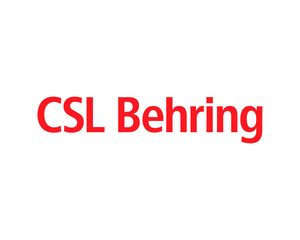International Survey Finds Self-Administered Treatment on the Rise Among Hereditary Angioedema Patients
Responding HAE specialists agree that self-administration is advantageous to patients' time, independence and convenience
BALTIMORE, Nov. 8, 2013 /PRNewswire/ -- More patients with hereditary angioedema (HAE), a rare and potentially fatal genetic disorder, are being offered and opting for self-administration therapy, according to data from a new survey being presented at the 2013 American College of Allergy, Asthma & Immunology (ACAAI) Annual Meeting. Of the HAE treatment centers surveyed in Europe, Canada and the United States, the majority (70 percent) reported that at least 50 percent of patients were now self-administering their therapy, and the HAE specialists who responded agreed that this treatment option is advantageous to patients, citing key benefits as time saved, independence and convenience.
"HAE attacks can be serious, painful and frightening, and until recently they required most patients to travel to a clinic or emergency department for treatment, a time-consuming process that can increase the patient's anxiety," said Timothy J. Craig, D.O., Professor of Medicine and Pediatrics at Penn State University in Hershey, Pennsylvania, and one of the study's investigators. "Fortunately, three HAE therapies are now indicated for self-administration, which our survey confirmed has the potential to minimize the burden of disease for these patients because when faced with an attack, they can intervene earlier."
According to results of the 16-question, online survey, physicians agreed that all patients should be considered for self treatment if certain characteristics are met, including motivation, mental ability and clinical need. While all HAE centers included in the survey offer self-administration, centers in Europe and Canada provide self-administration training. Centers in the United States offer training through a home-nursing agency. Survey respondents also agreed that barriers to self-administration still exist, specifically citing a patient's infusion skill set. Instituting a 24-hour hotline was one solution offered by physicians as way to overcome this barrier.
The survey was sponsored by CSL Behring, which markets Berinert® (C1 inhibitor [C1-INH]), one of the three HAE therapies currently indicated for self-administration.
About Berinert®
Berinert, C1 Esterase Inhibitor (Human), a pasteurized, nanofiltered, plasma-derived intravenous therapy, treats acute attacks of facial, abdominal and laryngeal hereditary angioedema (HAE) symptoms by providing C1 Esterase Inhibitor deficient adult and adolescent patients with the missing human protein. The safety and efficacy of Berinert in preventing HAE attacks have not been established.
Without C1 Esterase Inhibitor, people with HAE suffer from recurrent episodes of rapid swelling of areas of the skin and underlying tissues, including the face, mouth, throat and abdomen. CSL Behring has marketed its pasteurized and nanofiltered C1 Esterase Inhibitor concentrate, Berinert, in Germany for more than 30 years. The product is also approved and marketed in 23 other European countries, the United States, Australia, Canada, Israel, Argentina, Japan and South Korea.
Berinert is contraindicated in individuals with a history of life-threatening systemic reactions to C1 Esterase Inhibitor preparations, including anaphylaxis. The most serious adverse reaction reported in subjects who received Berinert in clinical studies was an increase in the severity of pain associated with HAE. In placebo-controlled clinical trial, dysgeusia was the most common adverse reaction reported in over 4 percent of subjects who received Berinert and more frequently than in the placebo group. Thrombotic events have been reported in patients receiving C1 Esterase Inhibitor product, including Berinert, at the recommended dose as well as when used off-label or at higher-than-labeled doses.
Berinert is derived from human plasma. The risk of transmission of infectious agents, including viruses and, theoretically, the Creutzfeldt-Jakob disease (CJD) agent, cannot be completely eliminated. Please see full prescribing information for Berinert.
About HAE
HAE is a genetic disorder caused by a deficiency of C1-INH and is inherited in an autosomal dominant manner. Symptoms of HAE include episodes of edema or swelling in the face, abdomen, larynx and extremities. Patients who have abdominal attacks of HAE can experience episodes of severe pain, diarrhea, nausea and vomiting caused by swelling of the intestinal wall. HAE attacks that involve the face can cause painful distortion and painful swelling. Diagnosis of HAE requires a blood test to confirm low or abnormal levels of C1-INH.
About CSL Behring
CSL Behring is a global leader in the plasma protein biotherapeutics industry. Passionate about improving the quality of patients' lives, CSL Behring manufactures and markets a range of safe and effective plasma-derived and recombinant products and related services. The company's therapies are used in the treatment of immune deficiency disorders, hereditary angioedema, hemophilia, von Willebrand disease, other bleeding disorders and inherited emphysema. Other products are used for the prevention of hemolytic diseases in the newborn, in cardiac surgery, organ transplantation and in the treatment of burns. The company also operates one of the world's largest plasma collection networks, CSL Plasma. CSL Behring is a subsidiary of CSL Limited, a biopharmaceutical company with headquarters in Melbourne, Australia. For more information, visit www.cslbehring.com.
Contact:
Sheila A. Burke
Director, Communications & Public Relations
Worldwide Commercial Operations
CSL Behring
O: 610-878-4209
SOURCE CSL Behring
WANT YOUR COMPANY'S NEWS FEATURED ON PRNEWSWIRE.COM?
Newsrooms &
Influencers
Digital Media
Outlets
Journalists
Opted In





Share this article